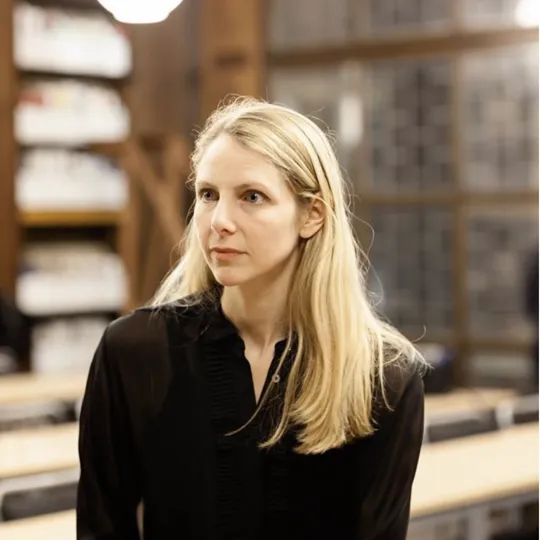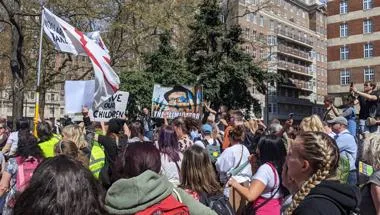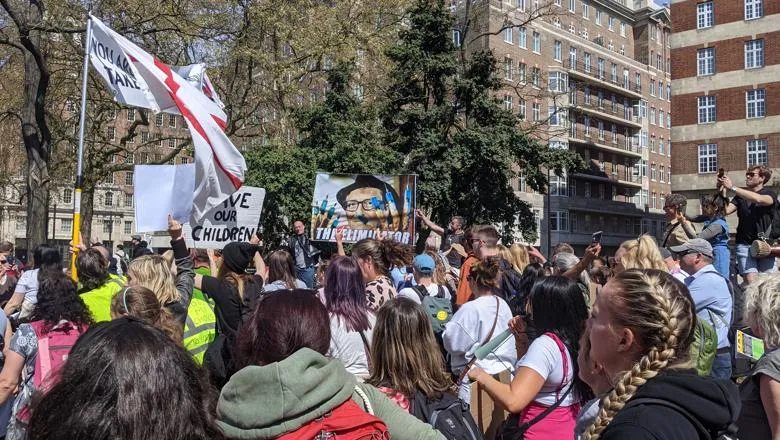
Professor Clare Birchall
Professor of Contemporary Culture
- English Department Impact Lead
Research interests
- Culture
- Digital
- Literature
Contact details
Biography
Professor Birchall is the author of Radical Secrecy: The Ends of Transparency in Datafied America, Shareveillance: The Dangers of Openly Sharing and Covertly Collecting Data, and Knowledge Goes Pop: From Conspiracy Theory to Gossip. She is the co-author of Conspiracy Theories in the Time of Covid-19 and is currently writing a book titled Everything is Connected: The Internet and Conspiracy Theories for MIT Press.
Her research is concerned with contested knowledges, the politics of visibilities, surveillance and digital culture. Professor Birchall recently worked on an AHRC-funded research grant on Covid-19 conspiracy theories (2020-1), and was the Co-I on a 3-year AHRC-funded project on what difference the internet has made to conspiracy theories (2021-4). She also led a 3-year CHANSE funded European wide project called Researching Europe, Digitalisation, and Conspiracy Theories (2022-5).
She was part of a 5-year EU-COST funded research network on Conspiracy Theories as well as an ESRC-funded series of research seminars on privacy issues entitled ‘Debating and Assessing Transparency Arrangements - Privacy, Security, Surveillance, Trust’.
Research interests and PhD supervision
- Secrecy and transparency
- Conspiracy theories, disinformation and contested knowledge
- Popular culture
- Political discourse
- Cultural studies and cultural theory
- Visual culture
- Digital culture and datafication
Professor Birchall has supervised PhDs on a wide variety of topics including material secrecies in Early Modern Literature, Obama era representations of torture in film and television, and raced subjectivities in contemporary American television. She is currently supervising a LISS funded PhD on ex-conspiracy theorists. She welcomes applications to study with her on any of the research interests outlined above.
For more details, please see her full research profile.
Selected publications
- Conspiracy Theories in the Time of Covid-19
- Radical Secrecy: The Ends of Transparency in Datafied America
- Shareveillance: The Dangers of Openly Sharing and Covertly Collecting Data
- Knowledge Goes Pop: From Conspiracy Theory to Gossip
- ‘Secrecy and Transparency’, Special Issue, Theory, Culture and Society, 172pgs, 28 (7-8) Dec 2011.
Teaching
Professor Birchall teaches modules on popular culture and cultural theory at both undergraduate and postgraduate levels.
Expertise and public engagement
As her research engages with topics that are timely and of general interest, Professor Birchall is invited to speak at public venues and galleries. Past venues include the Photographers’ Gallery (to coincide with its exhibition on conspiracy images), Chatham House (for a debate on fake news), and the Design Museum. She is regularly interviewed by the media (such as The Guardian, The Sunday Times, BBC, Wired, Deutsche Welle) and has written articles for newspapers and magazines: for example, on gossip for Tank Magazine; on contested photographic evidence for Photoworks; and on secrecy in a post-Snowden environment for The European. She also worked on a podcast series about conspiracy theories for The Conversation, and was interviewed for a Radio 4 series on the history of secrecy.
Professor Birchall serves on the editorial boards of a number of journals including Cultural Studies, Media Theory, New Formations and Secrecy and Society, as well as a Routledge book series on conspiracy theories and the Open Humanities Press.
Research

Centre for Digital Culture
The Centre for Digital Culture at King’s College London is an interdisciplinary research centre promoting research and debate on digital culture

REDACT: Researching Europe, Digitalisation and Conspiracy Theories
REDACT - Analysing how digitalisation shapes the form, content, & consequences of conspiracy theories, including online sociality & offline actions and effects.
Project status: Ongoing

KingsCAT: Capture and Analysis Tool for Social Media Research at King’s College London
KingsCAT is an instance of the open source 4CAT: Capture and Analysis Toolkit set up to support interdisciplinary and collaborative social media research.
Project status: Ongoing
News
One size does not fit all for combatting conspiracy theories in Europe, says new research
A continuous feedback loop of media reporting, political opportunism, protest groups and social media algorithms are fuelling the spread of conspiracy...

New REDACT project to understand how conspiracy theories spread across Europe
New collaborative research launched to understand the production, consumption, circulation and regulation of conspiracy theories across Europe.

Events

Conspiracy Theories in the Time of Covid-19: Panel Discussion and Book Launch
A panel discussion to launch a new book, Conspiracy Theories in the Time of Covid-19 with co-authors, Clare Birchall and Peter Knight.
Please note: this event has passed.
Research

Centre for Digital Culture
The Centre for Digital Culture at King’s College London is an interdisciplinary research centre promoting research and debate on digital culture

REDACT: Researching Europe, Digitalisation and Conspiracy Theories
REDACT - Analysing how digitalisation shapes the form, content, & consequences of conspiracy theories, including online sociality & offline actions and effects.
Project status: Ongoing

KingsCAT: Capture and Analysis Tool for Social Media Research at King’s College London
KingsCAT is an instance of the open source 4CAT: Capture and Analysis Toolkit set up to support interdisciplinary and collaborative social media research.
Project status: Ongoing
News
One size does not fit all for combatting conspiracy theories in Europe, says new research
A continuous feedback loop of media reporting, political opportunism, protest groups and social media algorithms are fuelling the spread of conspiracy...

New REDACT project to understand how conspiracy theories spread across Europe
New collaborative research launched to understand the production, consumption, circulation and regulation of conspiracy theories across Europe.

Events

Conspiracy Theories in the Time of Covid-19: Panel Discussion and Book Launch
A panel discussion to launch a new book, Conspiracy Theories in the Time of Covid-19 with co-authors, Clare Birchall and Peter Knight.
Please note: this event has passed.
